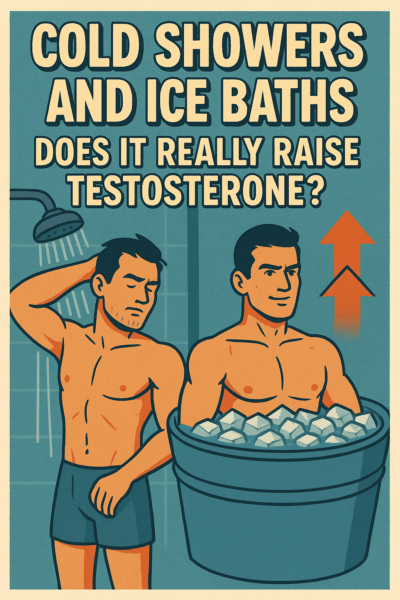
TikTok bros swear by it. Biohackers won’t shut up about it. And your buddy from the gym? He’s plunging into a garbage can full of ice in his garage because “it boosts testosterone.”
But is any of it true?
Let’s break down what the science actually says about cold exposure and testosterone—and whether freezing your ass off is worth the hype.
🧊 The Claim: Cold Exposure Boosts Testosterone
The theory is simple:
Expose your body to freezing temperatures → activate your nervous system → improve hormone function → hello, higher testosterone.
Sounds great, right? Especially if you’re already doing TRT or looking for natural ways to support your levels.
But like most viral health hacks… it’s not that simple.
📚 What the Science Says
Here’s what we do know:
-
Short-term cold exposure can spike norepinephrine—a hormone tied to energy, focus, and fat burning.
-
Cold can reduce inflammation and improve blood flow, especially post-workout.
-
One 1991 study on rats showed cold exposure may increase testosterone production in the testes. (Yes—rats. Not humans.)
-
A 2007 study found that chronic cold stress in men could actually reduce testosterone, depending on intensity and duration.
So the TL;DR?
Cold exposure might have minor hormonal benefits short term—but it’s not a proven testosterone booster.
💡 What Cold Exposure Can Help With
While it may not skyrocket your T-levels, cold showers and ice baths can support overall health in ways that indirectly benefit testosterone:
✅ Reduces inflammation
✅ Improves recovery after workouts
✅ May help with stress adaptation
✅ Wakes you up fast
✅ Can elevate mood and dopamine
Better recovery and less stress = better environment for testosterone. But again, it’s not magic.
🚫 What Cold Exposure Won’t Do
Let’s set the record straight:
❌ It won’t replace TRT
❌ It won’t bulk you up overnight
❌ It won’t fix low testosterone on its own
If your testosterone is truly low, no amount of cold plunging is going to fix it. You need a blood test, a proper diagnosis, and a game plan.
🔥 Our Take at Limitless Male
If you love your ice baths, keep plunging. We’re not here to yuck your cold, soggy yum.
But if you’re using them instead of checking your hormone levels or getting real treatment—you’re missing the point.
Cold showers won’t hurt. But clinical care helps.
👉 Want to Know What’s Really Going On With Your Testosterone?
Let’s stop guessing.
At Limitless Male, we run a full panel that gives you the real answers—no ice required.
📍 Book your consult. Get your numbers. Reclaim your edge.

